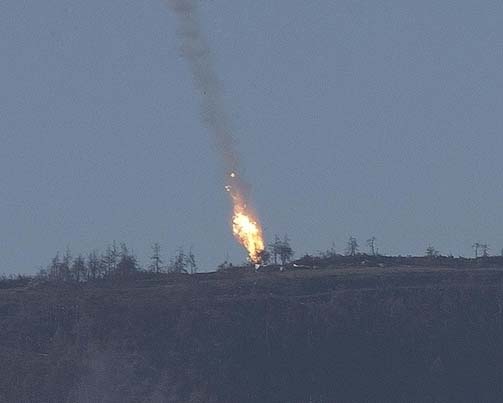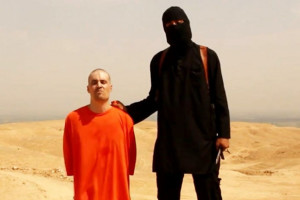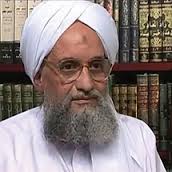Administrator
IMESClub DIRECTORATE
Борьба с сирийским филиалом «Аль-Каиды»: контртеррористическая стратегия
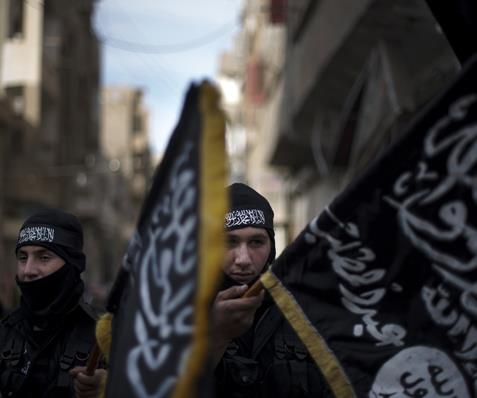 Авторы материала не оправдывают терроризм и выступают за все виды борьбы с ним, однако контртеррористическая стратегия не допускает упрощений и требует всеобъемлющих методов. Особенно это относится к сирийскому конфликту, где радикальные силы стали частью повстанческого движения, чем в политических и военных целях пользуются в Дамаске, объявляя всю вооруженную оппозицию «террористами». В конце декабря Россия опубликовала на сайте военного ведомства список умеренных групп и запустила переговорный процесс в Астане, тем самым сделала верный шаг в сторону урегулирования сирийского конфликта.
Авторы материала не оправдывают терроризм и выступают за все виды борьбы с ним, однако контртеррористическая стратегия не допускает упрощений и требует всеобъемлющих методов. Особенно это относится к сирийскому конфликту, где радикальные силы стали частью повстанческого движения, чем в политических и военных целях пользуются в Дамаске, объявляя всю вооруженную оппозицию «террористами». В конце декабря Россия опубликовала на сайте военного ведомства список умеренных групп и запустила переговорный процесс в Астане, тем самым сделала верный шаг в сторону урегулирования сирийского конфликта.
Но тема борьбы с радикальной структуры «Хайат Тахрир аш Шам» (ХТШ), где растворилась «Джебхат ан-Нусра»/ «Джебхат Фатх аш-Шам», до сих пор дискутируема как в Вашингтоне, так и Анкаре. Прямо этот вопрос стоит и перед Москвой, которой формально принадлежит инициатива создания «зон деэскалации». В настоящее время уже не является проблемой размежевание оппозиции, поскольку, как показывает практика, любое более-менее устойчивое перемирие при отсутствии необходимости бороться против общего противника способствует противостоянию умеренных фракций с радикальными структурами. Провинция Идлиб и примыкающие к ней участки Латакии, Алеппо и Хамы – одна из четырех «зон деэскалации», но главное – это территория растущей конкуренции между двумя крупнейшими объединениями – связанного с «Аль-Каидой» ХТШ и «Ахрар аш-Шам», под крылом которого находятся другие группы оппозиции подобного спектра.
Формирование антитеррористической дуги
«Зоны деэскалации» - достаточно вольный термин. Его общий смысл вроде бы ясен, но трактовки могут разниться. Теоретически «зона дескалации» подразумевает снижение интенсивности боевых действий, но не исключает проведение каких-либо операций. Отсюда опасения суннитской оппозиции и ряда внешних игроков, что инициатива Москвы – всего лишь уловка, играющая на руку Дамаску, которая позволит «одомашнить» и ослабить повстанцев, чем в среднесрочной перспективе может воспользоваться режим Асада и заинтересованный в его сохранении Иран - для их полного подавления. Однако такой сценарий – самый негативный. Наступление проправительственных войск на Идлиб, очевидно, сплотит все повстанческие группировки перед общей угрозой и приведет к новым коалициям радикальной и умеренной оппозиции, то есть к еще большему укоренению «Аль-Каиды» в Сирии, вызовет новый гуманитарный кризис и волну беженцев. Численность населения провинции как минимум 1 млн человек, провинциальный совет Идлиба дает цифру в 2-2,2 млн человек. Естественно, в такой операции большие потери понесут и наступающие, поэтому Дамаск и Иран постарались бы втянуть в нее Россию.
Представляется, что Москве важно сохранять здесь баланс: с одной стороны, укреплять свои позиции в Сирии, с другой – не ассоциироваться полностью с режимом Асада и шиитским Ираном. Это можно сделать только поиском альтернативных решений для урегулирования сирийского кризиса и, несмотря ни на что, продолжением диалога с США, Израилем и монархиями Персидского залива. Который, кстати, нужен не только для Сирии, но и для решения других проблем, с которыми сталкивается Россия.
Но борьба с «Аль-Каидой» - дело не только умеренной оппозиции, которая на поле боя часто проигрывает более опытным и хорошо подготовленным боевикам. Хотя, конечно радикализация оппозиции с начала сирийского восстания играла и продолжает играть на руку режиму Асада и Ирану (откровенно говоря, они также приложили к этому процессу много усилий, например, выпустив из тюрем джихадистов для дискредитации революционного движения), что до сих позволяет называть любые группы оппозиции «террористами», в том числе состоящие только из сирийцев и бывших военнослужащих САА.
Сценарий российско-турецких действий в Идлибе, по всей видимости, не снят с повестки дня, но он, так или иначе, сопряжен с курдским вопросом – «изъятием» у SDF арабских поселений в районе Тель-Рифата, что напрямую связано с операцией по взятию Ракки. По той информации, которая есть, этот сценарий всерьез прорабатывался Москвой и Анкарой. Он допускает соединение через Тель-Рифат анклавов оппозиции в Идлибе и на севере Алеппо (зона проведения турецкой операции «Щит Евфрата»), введение турецких сил со стороны границы с Идлибом – в деревню Атма (Atma) до города Дарат Изза (Darat Izza) и развертывание миротворческого контингента на горе Шейх Баракат (Sheikh Barakat Mountain) в западном Алеппо для контроля «коридора». Тем самым может быть сформирован плацдарм (в виде дуги) для проведения рейдов против ХТШ. Подобный сценарий позволил бы помочь оппозиции в борьбе с радикальными и террористическими формированиями ХТШ, которые при активизации борьбы с ними будут стараться сорвать общий режим прекращения огня, хотя стратегически заинтересованы в сирийской «тихой гавани», наподобие пакистанской. Но!
Как ни странно, «Аль-Каида» также заинтересована спровоцировать наступление проправительственных войск на Идлиб. Это позволит ей как можно дольше сохранять свои позиции в Сирии, пользуясь при этом поддержкой местного населения.
23 июля пришли сообщения, что ХТШ удалось взять под контроль большую часть центра провинции Идлиб – одноименного города. В данной ситуации внешним игрокам необходимо предпринимать действия по поддержке оппозиции. Понятно, что нынешнее затягивание переговоров играет на руку Дамаску и Ирану, в интересах которых также как можно дольше вести боевые действия и обвинять все группы в «терроризме». Однако это не приведет к стабильности страны и доверию среди суннитского населения.
Опытные джихадисты «Аль-Каиды», опираясь на выработанную стратегию присутствия организации на других «фронтах глобального джихада» умело организовали военное и экономическое присутствие ХТШ в Идлибе, однако из-за отсутствия управленческого опыта они не могут контролировать крупные города провинции. Этот пробел в последнее время они стараются восполнить назначением не иностранцев, а сирийцев в административных органах, находящихся под контролем ХТШ. Под контролем организации также находятся все контрабандные пути на сирийско-турецкой границе от Даркуша (Darkoush) до Гарема (Harem) и военные базы Тафтаназ (Тaftanaz) и Абу Дхур (Abu Dhour). Непонятная ситуация сложилась с ключевым переходом Баб аль-Хава (Bab al-Hawa): 21 июля после боестолкновений ХТШ с «Ахрар аш-Шам» он был формально передан под гражданское управление, однако «Ахрар аш-Шам» там потерял позиции. К слову, и до этого под контролем ХТШ находились КПП, которые позволяли нападать на конвои с гуманитарной и военной помощью для умеренных групп, идущих через переход Баб аль-Хава.
Ослабление ХТШ изнутри
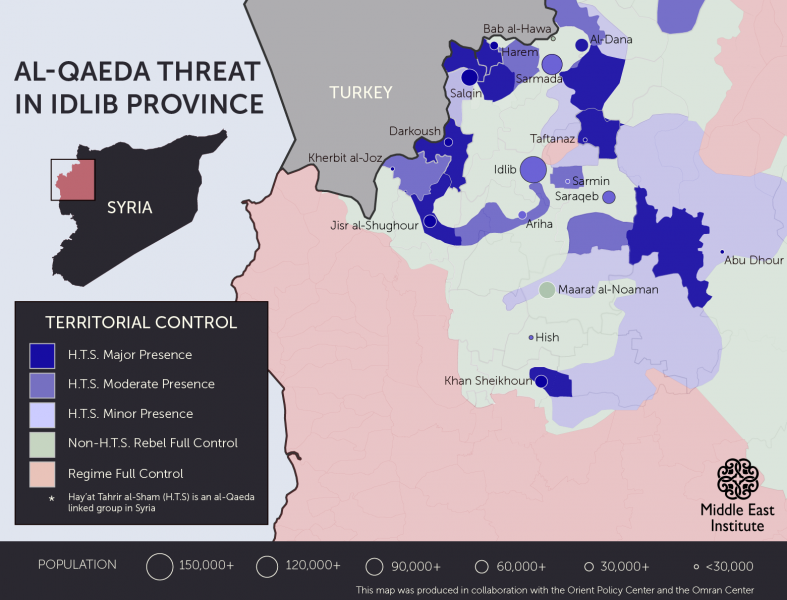
На фоне противоборства ХТШ и «Ахрар аш-Шам» идет процесс выхода групп оппозиции из состава обеих фракций. Группы, несогласные с политикой «Ахрар аш-Шам», его дрейфом в сторону Сирийской свободной армии и формированием единого командования «северо-западной оппозицией» уходят к ХТШ, и наоборот – некоторые «батальоны» выходят из ХТШ для того, чтобы примкнуть к «Ахрар аш-Шам» или даже занять нейтральную позицию. Так, 20 июля о своем выходе объявила фракция «Нуреддин аз-Зенки», путь которой от Свободной сирийской армии до присоединения к ХТШ довольно примечателен.
Она была одной из ведущих фракций в провинции Алеппо и играла важную роль во всех операциях, проводившихся вокруг и в одноименной столице. «Нуреддин аз-Зенки» стала лидирующей группировкой в объединении повстанческих фракций «Фатх Халаб», и естественно, что руководство «Зенки» взяло курс на достижение окончательного доминирования как в провинции Алеппо, так и в рамках «Фатх Халаб», рассчитывая на помощь как Саудовской Аравии (группировка была салафитской, но не джихадистской), так и США. Тем не менее, фракция не смогла справиться с этой задачей, а ее амбиции на этом направлении вступили в противоречия с теми же «Ахрар аш-Шам» и «Джебхат Шамия». Попытки «Нуреддин аз-Зенки» силовым путем добиться признания своей ведущей роли вылились в нападения ее бойцов на фракцию «Таджаму Фастаким Камма Умирт». В итоге оппозиция в провинции Алеппо отказалась иметь дело с «Зенки», что побудило ее руководство примкнуть к «ан-Нусре».
То есть, несмотря на то, что в структуре ХТШ сильны позиции людей, связанных с «Аль-Каидой», она не однородна.
Подобная ситуация была и до ребрендинга «Джебхат ан-Нусры»: в рамках структуры существовали, скажем так, договороспособные фракции, состоящие из сирийцев, чье присутствие там было обусловлено, скорее, «конъюнктурными» соображениями, нежели поддержкой идей «всемирного джихада», которые разделяло руководство «ан-Нусры» как филиала «Аль-Каиды». Еще тогда в экспертной среде возникло специфическое определение двух фракций - «тяжелой» «ан-Нусры», состоящей из убежденных сторонников идеологии «Аль-Каиды», и «легкой» - из местных сирийских групп, которые присоединились к структуре в ходе сирийского конфликта, прежде всего, из-за военных соображений. Соответственно, если уничтожение «тяжелой» части «ан-Нусры» (ныне ХТШ) возможно только силовым путем, то с «легкой частью» теоретически возможно достижение договоренностей, но при условии их полного отрыва от ХТШ и растворения в иных повстанческих группировках умеренного спектра.
«Джебхат ан-Нусра» прошла несколько этапов развития в ходе сирийского конфликта пока, наконец, не трансформировалась в объединение «Хайат Тахрир аш-Шам». Собственно, начавшаяся с небольшой группы воевавших в Ираке боевиков, «ан-Нусра» пополнялась как гражданами иностранных государств, так и местными жителями. После разрыва с ИГИЛ и перехода туда многих джихадитских фракций, состоящих из иностранцев, большинство боевиков «Нусры» (по некоторым подсчетам, около 60%) были уже сирийцами.
На определенном этапе руководство организации, нуждающееся в восполнении потерь, даже отказалось от специального «экзамена» для вступающих в группировку кандидатов, где те должны были демонстрировать убежденность в «правильности» идей, методов достижения целей и религиозных основ, исповедуемых сирийским филиалом «Аль-Каиды». После этого «ан-Нусра» становится открытой для вступления в нее сирийцев, от которых не требовалось каких-либо глубоких знаний, что существенно расширило сирийский национальный компонент в организации. Опираясь на него, некоторые руководители «ан-Нусры» пытались предложить новую повестку, целью которой была «легализация» движения и ее дальнейшее растворение среди сирийской оппозиции.
Такой фигурой, например, был Салех аль-Хамави (Saleh al-Hamawi), который стоял у истоков организации «Джебхат ан-Нусра» в октябре 2011 года. Позже, в июле 2015, он был исключен из ее состава за открытую критику все более «агрессивных» методов «фронта». Летом 2016 года он нашел взаимопонимание с «Ахрар аш-Шам», с которым тогда велись активные переговоры и консультации.
В ходе закрытых встреч, проведенных в западной части провинции Алеппо и в Идлибе, было, в частности, предложено оторвать «легкую» часть «Джебхат ан-Нусры» от филиала «Аль-Каиды», объединив ее с иными повстанческими фракциями, и организовать новую независимую структуру – «Аль-Харакат аль-Исламия аль-Соурия» или «Сирийское Исламское Движение».
По информации от источников, тогда примерно одна треть «ан-Нусры» могла присоединиться к новому движению - прежде всего, из представителей «легкой» национальной сирийской составляющей, которые выступали за разрыв с «Аль-Каидой». Однако тогда они столкнулись с мощным противодействием со стороны «коренных» группировок «ан-Нусры» и таких подразделений, как «Джунд аль-Акса» (которая, кстати, в свое время вышла из состава «ан-Нусра» на волне ее противостояния с ИГИЛ для привлечения иностранных моджахедов).
По некоторым данным, от раскола «ан-Нусру» тогда во многом спас ребрендинг – переименование в «Джебхат Фатх аш-Шам» и объявление о разрыве с «Аль-Каидой», которое, конечно, носило формальный характер. Тем не менее этот шаг устроил всех, поскольку в то время США и Россия активно вели переговоры о противодействии организации.
В нынешних условиях «легкий» спектр ХТШ по своему «весу» превышает тот, который был в «Джебхат ан-Нусра». С одной стороны, в самой группировке это может создать угрозу раскола, но с другой - дает возможность позиционировать себя в качестве «широкого фронта», открытого для вхождения в него любых группировок оппозиции. Тем не менее отрыв групп от «тяжелой основы» ХТШ – метод, в котором ключевую роль может сыграть Турция и ряд суннитских монархий, несмотря на кризис в Персидском заливе. Это позволит ослабить «Аль-Каиду», действия которой играют не на защиту суннитов, а на их дальнейшее вытеснение из Сирии, что само по себе - фактор для развития терроризма как в Сирии, так и за ее пределами.
Авторы
Антон Мардасов - руководитель отдела исследований ближневосточных конфликтов Института инновационного развития, эксперт РСМД
Кирилл Семенов - руководитель Центра исламских исследований Института инновационного развития, эксперт РСМД
Iran does not have enough funds to increase oil production
 After the visit of Russia’s Minister of Energy to Tehran, Iran promised to freeze its oil production at 3.8 million barrels per day if OPEC prolongs its oil cuts agreement at the group’s meeting in April. An expert says that Iran does not have enough money to increase oil production, and is trying to get political dividends out of the freeze.
After the visit of Russia’s Minister of Energy to Tehran, Iran promised to freeze its oil production at 3.8 million barrels per day if OPEC prolongs its oil cuts agreement at the group’s meeting in April. An expert says that Iran does not have enough money to increase oil production, and is trying to get political dividends out of the freeze.
Iran’s Minister of Petroleum Bijan Namdar Zangeneh said on Mar. 14 that his country was ready to freeze oil production at 3.8 million barrels per day in case OPEC countries agree to extend the agreement to cut oil production. The next OPEC meeting is expected to take place in April in Doha.
The announcement from Zanganeh came when Russian Minister of Energy Alexander Novak was in Tehran. A day earlier, on Mar. 13, he met Iranian Communications and Information Technology Minister Mahmoud Vaezi in Moscow to discuss Russia-Iran economic cooperation. The two co-chaired the meeting of the Iran-Russia Joint Economic Committee.
OPEC oil freeze
“Iran has reached its maximum potential for oil production,” Chatham House Associate Nikolay Kozhanov told RBTH. He added that Tehran would not be able to increase production without a significant amount of investment.
The investments are needed not only to increase, production, but even to maintain the current level, as “Iran’s oil industry is not in the best shape,” Kozhanov says.
Iran’s willingness for a freeze means that Tehran is trying to get political dividends from the situation, the expert adds.
Kozhanov does not see Russia having a major influence in Iran’s decision-making process when it comes to production. He believes that Russia can play the role of a messenger transmitting messages from other Middle Eastern countries to Iran.
Oil-for-goods
One of the issues Novak raised in Tehran was the signing of a new agreement based on the ‘oil-for-goods’ deal of 2014.
According to the 2014 memorandum, Russia was supposed to exchange goods and investments for 100,000 barrels of Iranian oil per day, but this was not implemented.
“The situation has drastically changed since the removal of sanctions, and Iran is a player in the market now,” Novak said. “Nevertheless, the memorandum concerning the ‘oil-for-goods’ deal, which runs for 5 years, remains in force.
The total volume of goods that Russia can deliver to Iran is estimated at $45 billion annually, Sputnik cited Russian Trade representative in Iran Andrei Lugansky as saying.
A new agreement is being discussed and may be signed in March. The deal that was signed in 2014 did not work for a number of reasons, Kozhanov told RBTH.
According to him, the 2014 deal, first of all, was a non-binding memorandum “born as a result of anti-Iranian sanctions” and it “was not well elaborated”.
“Iran then had limited opportunities to sell oil abroad, and an attempt to establish this trade of oil through Russia was one of the driving motives.”
Now the "Iranian companies are already involved in the trade of oil,” Kozhanov adds. He says there is now “more interest in the arrangement from the Russian side.”
Article from RBTH by
“Саудовская Аравия. XXI век на родине Ислама: от “всемирной бензоколонки” к “лаборатории инноваций и совершенства”
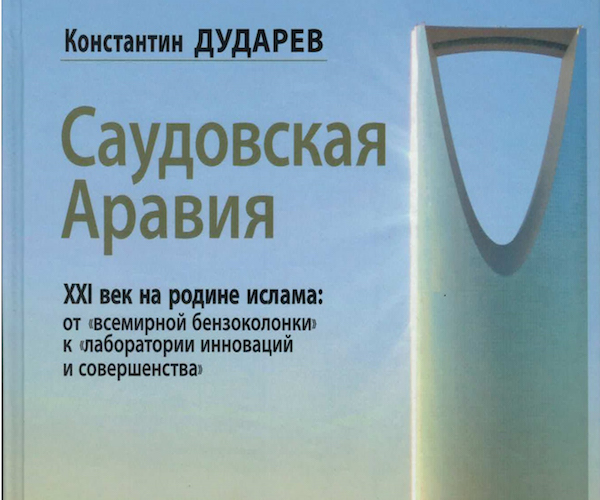 Обновленное издание книги “Саудовская Аравия. XXI век на родине Ислама: от “всемирной бензоколонки” к “лаборатории инноваций и совершенства” за авторством нашего члена, востоковеда и бизнесмена Константина Дударева, наконец, вышло в свет в марте 2017 годав «Издательском доме Недра».
Обновленное издание книги “Саудовская Аравия. XXI век на родине Ислама: от “всемирной бензоколонки” к “лаборатории инноваций и совершенства” за авторством нашего члена, востоковеда и бизнесмена Константина Дударева, наконец, вышло в свет в марте 2017 годав «Издательском доме Недра».
Эта замечательная нига – это рассказ от первого лица о различных сторонах сегодняшней жизни этой самобытной и во многих отношениях уникальной страны, в которой ему довелось жить и работать около 10 лет. Она повествует о первом опыте вхождения на ее рынок российских компаний, об особенностях ведения бизнеса, традициях, обрядах и обычаях, которые следует знать новичкам.
В 28-ми главах книги рассказывается о крупнейших экономических проектах, которые, по расчетам руководства, уже в обозримом будущем должны обеспечить переход королевства из категории «развивающихся» стран в клуб 10 наиболее промышленно развитых держав. Упоминается и о «Видении 2030» - принятой недавно руководством страны масштабной программе социально-эконом
Большое внимание уделяется нынешнему состоянию и перспективам развития нефтегазового сектора, доходы от которого используются как мощный рычаг для динамичного преобразования страны. Раскрываются принципы и критерии, в соответствии с которыми формируется политика КСА в области цен на нефть на мировом рынке, изложены задачи программы развития ядерной, солнечной и других возобновляемых источников энергии, состоящие в превращении королевства в экспортера электроэнергии в страны Азии, Африки и даже Европы.
Интерес вызывают главы, в которых рассказывается о многомиллиардных проектах по реконструкции святых мест ислама в Мекке и Медине, внедрении IT-технологий в инфраструктуру хаджа, больших успехах в области развития образования и здравоохранения, строительстве жилья и социальных объектов.
«Саудовская Аравия. XXI век на родине Ислама…” - это первая в нашей стране книга, которая дает возможность составить представление о сегодняшнем дне королевства, восполняет недостаток сведений об этой важной для нас соседней стране, являющейся сегодня флагманом арабского и мусульманского мира. Ориентированная на деловые круги и на широкий круг читателей, книга раскрывает потенциал сотрудничества и приобретает особую актуальность в наши дни, когда обе страны встали на путь создания «стратегического партнерства» как в борьбе против терроризма, так и в налаживании широкомасштабног
В 2016 году Ассоциация книгоиздателей РФ удостоила работу Дипломом «Лучшая книга года-2015» в номинации «Деловая литература».
ДударевКонстантин Петрович– выпускник МГИМО, около 25-ти лет работал в качестве журналиста, а затем бизнесмена в странах Ближнего Востока и Северной Африки. владеет арабским, английским и французским языками.
«Всем, ктоинтересуетсябизнесомсэтойстраной, «хаджем» вМеккуиМедину, нравамиикультурологией, этнографиейиполитикой, нефтьюиагро-аутсорсингом, атакжесобственножизньюибуднямиКоролевстваСаудовскаяАравия, рекомендуюпрочитать. Непожалеетевремени.»
Журнал «Международная жизнь», 26.05.2015
Сергей Филатов, обозреватель
«Есть все основания считать, что эта первая и пока единственная в России книга о сегодняшнем дне соседней арабской страны действительно поможет российскому бизнесу освоить весьма перспективный, но и очень специфический рынок Саудовской Аравии, а обычному читателю – «приподнять чадру» и увидеть сегодняшний день остающегося пока для нас загадочным королевства…»
«Независимая газета», 23.11.2015
Н.И. Петров, редактор журнала «Азия и Африка сегодня»
«Книгу Константина Дударева можно считать библиографическо
й редкостью на российском книжном рынке, где после выхода в 1986 году в свет знаменитой «Истории Саудовской Аравии» профессора Алексея Васильева книг по Саудовской Аравии практически не издавалось… Однако в отличие от своего предшественника автор использовал свой опыт журналистской работы, чтобы подробно описать различные стороны повседневной жизни королевства, делая книгу интересной не только для деловых кругов, но и для обычного российского читателя…»
Книгу можно купить на сайте Издательского дома «Недра» - www.nedrainform.ru , а также на сайтах интернет магазинов.
Призрачная угроза: cможет ли иранский газ бросить вызов интересам России?
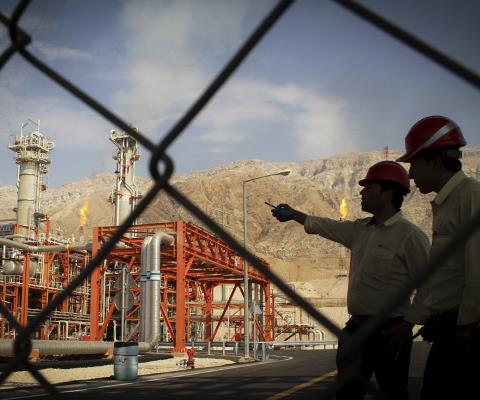 Как писали классики марксизма, «призрак бродит по Европе». Правда, в этот раз призрак не коммунизма, а иранского природного газа. Причем бродит уже достаточно давно: с 90-х годов ХХ века с завидной регулярностью в Тегеране говорят о желании выйти на газовый рынок ЕС и даже позиционируют свою страну как единственно возможного альтернативного России поставщика «голубого топлива». Стоит ли Москве опасаться появления конкурента — разбиралась «Лента.ру».
Как писали классики марксизма, «призрак бродит по Европе». Правда, в этот раз призрак не коммунизма, а иранского природного газа. Причем бродит уже достаточно давно: с 90-х годов ХХ века с завидной регулярностью в Тегеране говорят о желании выйти на газовый рынок ЕС и даже позиционируют свою страну как единственно возможного альтернативного России поставщика «голубого топлива». Стоит ли Москве опасаться появления конкурента — разбиралась «Лента.ру».
Страна невыполненных обещаний
Пытаясь привлечь внимание европейцев иранские власти то говорили о своем желании присоединиться к так называемому проекту газопровода «Набукко», который должен был обеспечить доступ азербайджанского и туркменского газа на европейский рынок, то заявляли о готовности прокладывать свою собственную, отдельную, ветку газопровода (трубопровод «Парс»), который бы обеспечил иранцам еще один выход к турецкой границе и позволил бы далее осуществить транзит топлива в страны Восточной и Южной Европы. Так же до начала гражданской войны в Сирии Тегеран раздумывал о выходе на средиземноморский рынок за счет строительства газопровода Иран-Ирак-Сирия (некоторые конспирологи даже считают, что указанные планы спровоцировали западных и арабских оппонентов Тегерана на дестабилизацию сирийского режима, чтобы сорвать строительство трубопровода). Наконец, недавно иранские чиновники заговорили о возможности наладить экспорт топлива в черноморский регион и начали обсуждать перспективы создания необходимой газотранспортной инфраструктуры в государствах Закавказья.
Правда, в большинстве (если не во всех) случаев речь идет лишь об определенной политической игре. Обещая европейцам природный газ и намекая на свою готовность «подвинуть» на рынках стран ЕС и европейской части постсоветского пространства Россию, Тегеран пытается добиться дальнейших уступок по санкционному вопросу, а также побудить западные государства активнее восстанавливать экономические связи с Исламской Республикой Иран (ИРИ). Впрочем, пока что всерьез указанные заявления воспринимает как раз российская сторона, всеми силами старающаяся укрепить свое присутствие в нефтегазовом секторе Ирана, чтобы не допустить ситуации, когда иранский природный газ действительно попадет на европейский рынок.
Не все объясняется санкциями
На практике дискуссия о перспективах поставок иранского газа в ЕС никогда не давала иных результатов, кроме подписания ни к чему не обязывающих документов. Главным оправданием со стороны Ирана в неспособности реализовать свои обещания были наложенные на него ограничительные меры. Отчасти эти утверждения верны. Накануне введения санкций 2010 года, положивших конец всякому сотрудничеству Ирана и ЕС в нефтегазовой сфере, между ИРИ и некоторыми европейскими компаниями при двусторонней правительственной поддержке были подписаны соглашения о намерениях организовать экспорт природного газа в Евросоюз. Однако боязнь оказаться под американскими санкциями за взаимодействие с Тегераном заставила европейцев отказаться от своих планов после 2010 года.
Впрочем, подписание Ираном и шестеркой международных переговорщиков в 2015-м Совместного всеобъемлющего плана действий (СВПД), нацеленного на урегулирование проблемы иранских ядерных испытаний, и последовавшее за этим снятие ряда ограничений на экономическое сотрудничество Тегерана с внешним миром, ясно продемонстрировали, что дело было не только и не столько в санкциях. Более того, с уверенностью можно сказать, что в среднесрочной перспективе иранский природный газ на рынке ЕС не окажется.
Во-первых, несмотря на то, что Иран владеет крупнейшими запасами природного газа, его добывающие мощности и газотранспортная инфраструктура остаются неразвитыми. Поэтому Тегеран физически не в состоянии нарастить добычу и экспорт природного газа за рубеж, даже если бы имел очень сильное желание сделать это. Текущий объем добычи в стране составляет приблизительно 251 миллиард кубометров в год, из которых экспортируется лишь шесть миллиардов. При этом ИРИ вынуждена импортировать из Туркменистана схожий объем «голубого топлива», чтобы отвечать по своим экспортным обязательствам, а также в зимний период удовлетворять потребности своих северных провинций в топливе. Чтобы значительно увеличить объемы добычи газа, Ирану потребуются десятки миллиардов долларов инвестиций, которые невозможно привлечь одномоментно. Однако даже при наиболее оптимистичном сценарии, как считают иранские и западные эксперты, в течение трех – пяти лет Тегеран едва ли сможет добиться увеличения газодобычи выше уровня 300 – 310 миллиардов кубометров в год.

Во-вторых, увеличение газодобычи не означает одномоментный рост объемов газа, доступного для экспорта за рубеж. Это, в свою очередь, определено стратегией экономического развития ИРИ, а также структурой внутреннего потребления энергоресурсов. В то время, как иранцы обещают ЕС свой газ, наращивание его экспорта не является приоритетом для Тегерана. В первую очередь получаемый газ предполагается предоставить внутренним потребителям, пустить на нужды нефтехимической промышленности (одного из главных двигателей иранской диверсификации), а также использовать для реализации программы по поддержанию уровня нефтедобычи на старых месторождениях за счет закачивания газа в нефтеносные слои. Только после этого газ пойдет на продажу за рубеж.
Сложность ситуации определена и тем, что объемы газа, потребляемого внутри страны, постоянно растут. Благодаря последовательной реализации программы по переводу иранской экономики на газ, проводящейся в последние десятилетия, доля «голубого топлива» в структуре потребляемых энергоресурсов к 2017-у составляла 60 процентов (против 35 – 40 процентов, приходящихся на нефть). В дальнейшем эта тенденция лишь усилится, поскольку реализация указанной программы (предусматривающей, например, перевод общественного и частного транспорта на газ) продолжается. Субсидирование цен на энергоносители внутри ИРИ также подстегивает рост внутреннего потребления газа при не самом эффективном его использовании. В этих условиях, большинство добываемого к 2020 году в стране «голубого топлива» будет по-прежнему «съедаться» иранской экономикой, а не идти на зарубежные рынки.
В-третьих, при выборе рынков сбыта газа слова и дела иранцев заметно расходятся. Иранские эксперты близкие к правительству признают, что, на текущий момент, власти их страны считают поставки «голубого топлива» на удаленные рынки (в страны ЕС) весьма рискованным, сложным и дорогостоящим проектом. Вместо этого, Тегеран видит главной целью налаживание экспорта энергоресурсов в соседние страны. Помимо очевидной экономической выгоды Тегеран рассчитывает таким образом получить и инструмент влияния на эти государства. В итоге, на практике, по крайней мере, в течение ближайших пяти лет ЕС не будет приоритетным рынком сбыта для ИРИ.
Россия верит
В текущих условиях, как уже было сказано, единственной страной, которая верит в возможность поставок иранского газа в Европу, является… Россия. У ее руководства, конечно, нет иллюзий, что в ближайшие пять лет ИРИ будет способна бросить России вызов на газовом рынке. Однако Москва явно ведет работу на долгосрочную перспективу. Причем ставка делается не на сдерживание развития иранского нефтегазового сектора, а на увеличение присутствия в нем российских компаний и перенаправление иранских экспортных потоков на неевропейские рынки. Так, основные отечественные энергетические корпорации уже активно ведут переговоры с Тегераном о сотрудничестве. Россия явно поддерживает проект трубопровода «Мир», который позволит Тегерану поставлять газ в Пакистан и, потенциально, в другие азиатские страны.
Кроме того, в августе 2016-го на саммите президентов Азербайджана, Ирана и России в Баку Владимир Путин завел речь о необходимости тесного сотрудничества и координации между тремя государствами в нефтегазовой сфере. В частности, он предложил план, по которому Россия через Азербайджан будет поставлять газ на север Ирана, в то время как российские компании будут получать для своих нужд иранский газ в Персидском заливе. Реализация подобного проекта позволила бы Ирану больше не зависеть от поставок топлива исключительно из Туркменистана, в то время как Москва могла быть уверена, что контролирует судьбу, по крайней мере, части иранского газа и не даст ему попасть на европейский рынок.
Иными словами, иранский газ все еще остается призраком для ЕС, но внимание охотника за привидениями он уже привлек.
Статья опубликована на сайте Lenta.ru
Moscow offers stage for Palestinian talks
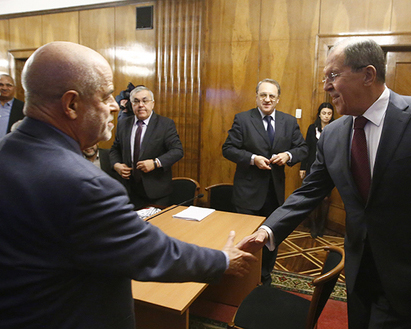 Moscow recently hosted its second intra-Palestinian meeting, where high-ranking members of numerous Palestinian political organizations, including Fatah, Hamas and Palestinian Islamic Jihad, directly engaged in conversation. In contrast to the first negotiations of the kind, which were held six years ago, the dialogue has become more inclusive, involving a dozen groups.
Moscow recently hosted its second intra-Palestinian meeting, where high-ranking members of numerous Palestinian political organizations, including Fatah, Hamas and Palestinian Islamic Jihad, directly engaged in conversation. In contrast to the first negotiations of the kind, which were held six years ago, the dialogue has become more inclusive, involving a dozen groups.
Although the Jan. 15-16 talks brought together Russian Foreign Ministry officials and enabled the parties to meet Russian Foreign Minister Sergey Lavrov, Russia emphasized the unofficial and purely intra-Palestinian status of the meeting, noting Russia was only involved as the host.
The event was organized by the Institute of Oriental Studies of the Russian Academy of Sciences and the Foundation for the Support of Islamic Culture, Science and Education.
The venue and date for the talks raised some questions. Foreign observers wondered why Palestinians would hold talks among their own factions in Moscow, especially when another meeting had just been held in Paris a few days before. Other factors in this process include the Beirut intra-Palestinian meeting that also took place a few days before the Moscow event; UN Security Council Resolution 2334, which addresses the illegality of Israeli settlements; and, naturally, US President Donald Trump’s statements about moving the US Embassy from Tel Aviv to Jerusalem.
Obviously, Trump’s rise to presidency and the subsequent changes expected in US Middle East policy acted as catalysts for this diplomatic flurry, which will have little true influence on the peace settlement.
Trump’s Islamophobia and his seemingly pro-Israeli stance do not augur well for Palestine, but then, they’re not a safe bet for the Jews, either.
Palestinians feel the need to demonstrate their ability to constructively interact with the international community and their genuine desire to resume negotiations. At the same time, they appear to be seeking more active support from other powerful extra-regional players — above all, Moscow, which has been playing a greater role in the region. Moreover, Russia has close ties with various factions within the Palestinian leadership.
Moscow, in turn, seeks to extend its role as a mediator in the Middle East beyond the Syrian agenda. Testifying to this were the first intra-Palestinian meeting, the 2015 intra-Syrian consultations and Syria-related cooperation with Turkey and Iran. Thus, the Kremlin’s courtesy is developing into a clear alternative to America’s straightforward approach, which is typified by irksome lecturing.
The Moscow talks produced a Jan. 17 joint statement that Palestine should soon see the formation of a national unity government. Palestinian President Mahmoud Abbas’ consultations with the parties’ officials would determine the particular structure of this government. Russia’s leading Orientalist, Vitaly Naumkin, who moderated the meeting, believes that under a positive scenario the government could be established by this summer, followed by elections for the Palestinian National Council. Palestinian diasporas worldwide, as well as residents of the Gaza Strip, West Bank and East Jerusalem, would be able to cast their ballots.
The participants think these steps could help overcome disunity among Palestine’s political establishment and society. The moves could also help resolve the conflict, because the Israelis would be deprived of their argument concerning the absence of a Palestinian representative to talk with, which they perennially use to justify their reluctance to conduct bilateral talks.
Hamas’ inclusion in a new government is a very sensitive issue, an Achilles’ heel of the plan. Paradoxically, many countries still regard Hamas, the party that won the democratic elections held at the West’s insistence, as a terrorist group.
The political process is very likely to reach a deadlock if, as projected, Tel Aviv and several members of the world political community insist on politically isolating a government that includes Hamas members, even though Hamas has significantly softened its stance over the past decade. The ball, however, is now in Israel’s court. Admittedly, the Palestinians may be counting on the mediation of Moscow, given its growing influence in the region.
The Palestinians are counting on Moscow’s assistance in several other matters as well. One issue is Israel’s continued settlement building and the “Judaization” of East Jerusalem. Second, Palestinians are concerned with Trump’s inflammatory promise to move the US Embassy from Tel Aviv to Jerusalem. Both Russian and Palestinian experts see that proposal as inflicting catastrophic damage to the entire peace process.
Finally, the talks also focused on the Middle East Quartet, which the Palestinian attendees unanimously considered discredited.
The issues discussed, as well as the assessments made, were predictable. As for the final communique, Moscow regarded it as “the best possible.” Such moderation makes one think again about the best strategy for the Palestinians in the current international situation, on the one hand, and about how to modify the international community’s approach to a settlement, on the other.
Today, the Quartet’s inefficiency, as well as the gradually declining interest of the world community in the endless and hopeless Israeli-Palestinian conflict, are apparent. Some actors will probably keep paying tribute to the Quartet’s symbolic role in the region from time to time and will be full of good intentions. But now, the more marked right-wing bias in the West presupposes the diminishing involvement of Europe and the United States in the Middle East. In the medium and short term, Israel will benefit from and be fully content with the current situation. Nevertheless, Russian experts say that in general this approach is disastrous for Israel as it will end up in a stalemate.
Until now, nothing has prevented Tel Aviv from relishing the situation. The growing role of regional powers, whose attitude toward the seemingly unchangeable conflict has become ever-more ambivalent, does not seem to affect the Israeli stance, either. Though support for the Palestinians remains sine qua non for any Arab politician at the emotional level, many of them are faced with much more acute issues at the pragmatic level. Moreover, Arab and Israeli leaders share some similar concerns, such as security issues and religious radicalization.
In this case, it is vital to back up the Palestinians. To address the matter, Palestinian political elites should restore public trust, which they lost after their failed attempts in the past to reconcile with each other. The unity government will be the first step to reach this objective. If Israel impedes its progress, it will be necessary to start all over again.
If global and regional political actors — even if some opt out — manage to sacrifice short-term self-interest for the sake of enhancing a strategy that will allow for a new regional balance of power, it will be possible to come to grips with the problem.
However, the developments in the Middle East over recent years demonstrate that, increasingly, tactics beat strategy.
Article from Al-Monitor: http://www.al-monitor.com/pulse/originals/2017/01/moscow-russia-palestine-israel-peace-process-talks.html
Kerry's parameters force Israel to take a hard look in the mirror
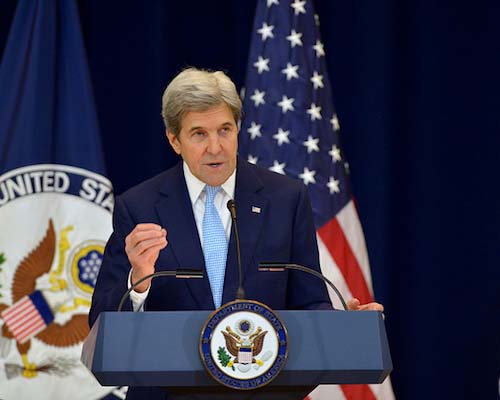
John Kerry’s speech this week clearly and rationally explained why the status quo will not enable Israel to maintain its Jewish and democratic character. Are Israelis paying attention?
By Elie Podeh and Nimrod Goren
Throughout 2016, analysts were wondering what – if at all – will be President Obama’s final move regarding the Israeli-Palestinian conflict. The options discussed included a presidential speech (like the Cairo speech in 2009), updating the Clinton parameters of 2000, and the advancement of a resolution at the UN Security Council. Eventually, all answers were somewhat right: UN Security Council Resolution 2334 was not initiated by the U.S., but it was definitely encouraged by the American administration. Obama himself did not deliver a speech, but his Secretary of State, John Kerry, did, conveying the frustration and disappointment of the administration from both sides, and especially from Israel’s settlement policy.
The Kerry speech introduced parameters for the resolution of the Israeli-Palestinian conflict. They did not differ much from the Clinton Parameters, and were more ambiguous and concise. Still, it was a much-needed move in light of the regional changes that took place since 2000, and of issues which gained traction since (such as Israel’s request that Palestinians recognize it as a ‘Jewish state’). The updated parameters provide Israelis – public and politicians alike – more clarity regarding the two-state solution and the steps needed in order to get there. They also generate new momentum by enabling the discussion on an end-game agreement to be based on a recent document, which is part of a set of international moves to advance conflict resolution, and not on a plan devised sixteen years ago.
The Trump effect
A key difference between the Kerry parameters and those of Clinton is the reference made by Kerry to the Arab Peace Initiative (which was not yet published in 2000) and to regional ramifications of Israeli-Palestinian peace. Kerry highlighted the unique opportunity that Israel is currently facing – an opportunity to establish normal ties with Arab countries, and to even launch a joint security framework. Kerry stressed that the fulfillment of this opportunity is clearly linked to progress towards Israeli-Palestinian peace, contrasting recent claims by Netanyahu that normalization between Israel and Arab countries can precede Israeli-Palestinian peace. In his speech, Kerry tried to convince Israelis that peace will bring them concrete regional benefits. He focused on relations with the Arab world and on chances for enhanced security, but he could also have mentioned the EU’s offer for a Special Privileged Partnership with Israel and the future Palestinian state, as another incentive for peace.
Kerry refrained from addressing a major change that took place since the Clinton parameters were issued – the split between the West Bank and the Gaza Strip following the Hamas takeover of Gaza. The Palestinian divide is a major obstacle on the road for a two-state solution, and is one that the international community tends to avoid due to the sensitivity of dealing with Hamas. It is worth remembering that because of this obstacle, the negotiations between Olmert and Abbas in 2007-8 were aimed to reach a “shelf-agreement” only; one that will be implementable only after the restoration of Palestinian unity. While the Quartet report of July 2016 focused on this thorny issue, Kerry decided to skip it altogether.

Republican presidential candidate Donald Trump addresses the 2016 AIPAC Police Conference in Washington D.C., March 21, 2016. (Photo courtesy of AIPAC)
Paradoxically, it was Trump’s victory and his positions on the Israeli-Palestinian issue that may have increased Obama’s motivation to make a final move. The UN Security Council resolution and the Kerry speech leave a legacy for Trump to deal with, but they also provide clear guidelines for future American administrations and for other countries that want to contribute to Israeli-Palestinian peacemaking. These steps demonstrated the continuity in American policy since 1967 regarding the occupied territories and Jerusalem.
Despite efforts along the years to mask and downplay differences between Israel and the U.S. on these issues, the American position – of Republican and Democratic administrations alike – has remained remarkably the same. A different policy by the Trump administration, if such will actually be taken, will be the exception. One can only wonder why hasn’t the Obama administration introduced its clear-cut positions earlier, during a time that still allowed the international community to act on them.
Looking in the mirror
The Kerry speech put a mirror in front of the Israeli government and society. Kerry clearly and rationally explained why the continuation of the status quo will not enable Israel to maintain its Jewish and democratic character in the long run. The ongoing occupation and the expansion of settlements makes the two-state solution gradually less feasible, and may lead to an irreversible situation. Those in the Israeli Right, who are ideologically committed to the settlements, do not have a reasonable answer to this dilemma, except for their wishful thinking that the Palestinians will somehow disappear or move to Jordan. The renowned Palestinian scholar Edward Said defined the role of intellectuals as “speaking truth to power.” In our case, it was the opposite. The power Kerry spoke explained the unsolvable contradiction between the occupation and Israel’s Jewish and democratic nature.
Netanyahu and his government responded to the American move with unprecedented bashing of an acting American administration. Netanyahu is looking forward to Trump’s inauguration, expecting a much more sympathetic approach by the next president. However, while American positions may change, the international consensus regarding the Palestinian issue is not likely to erode. This was demonstrated at the UN Security Council, and will be demonstrated again at the upcoming international conference in Paris. The Israeli government’s enthusiasm of Trump’s victory, should be replaced with genuine concern for Israel’s global standing, and for a change of policy that will help Israel regain the international legitimacy it is currently losing.
While American and international actions are important, they alone will not change facts on the ground and resolve the conflict. Eventually, Israelis and Palestinians themselves will have to take the lead. For this to happen, a courageous and pro-peace leadership is needed, as well as a strong civil society that challenges policies that jeopardize the two-state solution and lead Israel to increased isolation.
Prof. Elie Podeh is a Board Member at Mitvim – The Israeli Institute for Regional Foreign Policies, and teaches Middle Eastern Studies at the Hebrew University of Jerusalem. Dr. Nimrod Goren is the Head of the Mitvim Institute. This article was first published in Hebrew on Local Call. Read it here.
Material by +972 https://972mag.com/kerrys-parameters-force-israelis-to-take-a-hard-look-in-the-mirror/124070/
How the US Armed-up Syrian Jihadists by Alastair Crooke
The West blames Russia for the bloody mess in Syria, but U.S. Special Forces saw close up how the chaotic U.S. policy of aiding Syrian jihadists enabled Al Qaeda and ISIS to rip Syria apart, explains ex-British diplomat Alastair Crooke.
“No one on the ground believes in this mission or this effort”, a former Green Beret writes of America’s covert and clandestine programs to train and arm Syrian insurgents, “they know we are just training the next generation of jihadis, so they are sabotaging it by saying, ‘Fuck it, who cares?’”. “I don’t want to be responsible for Nusra guys saying they were trained by Americans,” the Green Beret added.
In a detailed report, US Special Forces Sabotage White House Policy gone Disastrously Wrong with Covert Ops in Syria, Jack Murphy, himself a former Green Beret (U.S. Special Forces), recounts a former CIA officer having told him how the “the Syria covert action program is [CIA Director John] Brennan’s baby …Brennan was the one who breathed life into the Syrian Task Force … John Brennan loved that regime-change bullshit.”
In gist, Murphy tells the story of U.S. Special Forces under one Presidential authority, arming Syrian anti-ISIS forces, whilst the CIA, obsessed with overthrowing President Bashar al-Assad, and operating under a separate Presidential authority, conducts a separate and parallel program to arm anti-Assad insurgents.
Murphy’s report makes clear the CIA disdain for combatting ISIS (though this altered somewhat with the beheading of American journalist James Foley in August 2014): “With the CIA wanting little to do with anti-ISIS operations as they are focused on bringing down the Assad regime, the agency kicked the can over to 5th Special Forces Group. Basing themselves out of Jordan and Turkey” — operating under “military activities” authority, rather than under the CIA’s coveted Title 50 covert action authority.
The “untold story,” Murphy writes, is one of abuse, as well as bureaucratic infighting, which has only contributed to perpetuating the Syrian conflict.
But it is not the “turf wars,” nor the “abuse and waste,” which occupies the central part of Murphy’s long report, that truly matters; nor even the contradictory and self-defeating nature of U.S. objectives pursued. Rather, the report tells us quite plainly why the attempted ceasefires have failed (although this is not explicitly treated in the analysis), and it helps explain why parts of the U.S. Administration (Defense Secretary Ashton Carter and CIA Director Brenner) have declined to comply with President Obama’s will – as expressed in the diplomatic accord (the recent ceasefire) reached with the Russian Federation.
The story is much worse than that hinted in Murphy’s title: it underlies the present mess which constitutes relations between the U.S. and Russia, and the collapse of the ceasefire.
“The FSA [the alleged “moderates” of the Free Syria Army] made for a viable partner force for the CIA on the surface, as they were anti-regime, ostensibly having the same goal as the seventh floor at Langley” [the floor of the CIA headquarters occupied by the Director and his staff] – i.e. the ousting of President Assad.
But in practice, as Murphy states bluntly: “distinguishing between the FSA and al-Nusra is impossible, because they are virtually the same organization. As early as 2013, FSA commanders were defecting with their entire units to join al-Nusra. There, they still retain the FSA monicker, but it is merely for show, to give the appearance of secularism so they can maintain access to weaponry provided by the CIA and Saudi intelligence services. The reality is that the FSA is little more than a cover for the al-Qaeda-affiliated al-Nusra. …
“The fact that the FSA simply passed American-made weaponry off to al-Nusra is also unsurprising considering that the CIA’s vetting process of militias in Syria is lacklustre, consisting of little more than running traces in old databases. These traces rely on knowing the individuals’ real names in the first place, and assume that they were even fighting-age males when the data was collected by CTC [Counterterrorism Centre] years prior.”
Sympathy for Al Qaeda
Nor, confirms Murphy, was vetting any better with the 5th Special Forces operating out of Turkey: “[It consisted of] a database check and an interview. The rebels know how to sell themselves to the Americans during such interviews, but they still let things slip occasionally. ‘I don’t understand why people don’t like al-Nusra,’ one rebel told the American soldiers. Many had sympathies with the terrorist groups such as Nusra and ISIS.”
Others simply were not fit to be soldiers. “They don’t want to be warriors. They are all cowards. That is the moderate rebel,” a Green Beret told Murphy, who adds:
“Pallets of weapons and rows of trucks delivered to Turkey for American-sponsored rebel groups simply sit and collect dust because of disputes over title authorities [i.e. Presidential authorities] and funding sources, while authorization to conduct training for the militias is turned on and off at a whim. One day they will be told to train, the next day not to, and the day after only to train senior leaders. Some Green Berets believe that this hesitation comes from the White House getting wind that most of the militia members are affiliated with Nusra and other extremist groups.” [emphasis added.]
Murphy writes: “While the games continue on, morale sinks for the Special Forces men in Turkey. Often disguised in Turkish military uniform, one of the Green Berets described his job as, ‘Sitting in the back room, drinking chai while watching the Turks train future terrorists’ …
“Among the rebels that U.S. Special Forces and Turkish Special Forces were training, ‘A good 95 percent of them were either working in terrorist organizations or were sympathetic to them,’ a Green Beret associated with the program said, adding, ‘A good majority of them admitted that they had no issues with ISIS and that their issue was with the Kurds and the Syrian regime.’”
Buried in the text is this stunning one-line conclusion: “after ISIS is defeated, the real war begins. CIA-backed FSA elements will openly become al-Nusra; while Special Forces-backed FSA elements like the New Syrian Army will fight alongside the Assad regime. Then the CIA’s militia and the Special Forces’ militia will kill each other.”
Well, that says it all: the U.S. has created a ‘monster’ which it cannot control if it wanted to (and Ashton Carter and John Brennan have no interest to “control it” — they still seek to use it).
U.S. Objectives in Syria
Professor Michael Brenner, having attended a high-level combined U.S. security and intelligence conference in Texas last week, summed up their apparent objectives in Syria, inter alia, as:

Video of the Russian SU-24 exploding in flames inside Syrian territory after it was shot down by Turkish air-to-air missiles on Nov. 24, 2015.
–Thwarting Russia in Syria.
–Ousting Assad.
–Marginalizing and weakening Iran by breaking the Shi’ite Crescent.
–Facilitating some kind of Sunni entity in Anbar and eastern Syria. How can we prevent it falling under the sway of al-Qaeda? Answer: Hope that the Turks can “domesticate” al-Nusra.
–Wear down and slowly fragment ISIS. Success on this score can cover failure on all others in domestic opinion.
Jack Murphy explains succinctly why this “monster” cannot be controlled: “In December of 2014, al-Nusra used the American-made TOW missiles to rout another anti-regime CIA proxy force called the Syrian Revolutionary Front from several bases in Idlib province. The province is now the de facto caliphate of al-Nusra.
That Nusra captured TOW missiles from the now-defunct Syrian Revolutionary Front is unsurprising, but that the same anti-tank weapons supplied to the FSA ended up in Nusra hands is even less surprising when one understands the internal dynamics of the Syrian conflict, i.e. the factional warfare between the disparate American forces, with the result that “Many [U.S. military trainers] are actively sabotaging the programs by stalling and doing nothing, knowing that the supposedly secular rebels they are expected to train are actually al-Nusra terrorists.”
How then could there ever be the separation of “moderates” from Al-Nusra – as required by the two cessations of hostilities accords (February and September 2016)? The entire Murphy narrative shows that the “moderates” and al-Nusra cannot meaningfully be distinguished from each other, let alone separated from each other, because “they are virtually the same organization.”
The Russians are right: the CIA and the Defense Department never had the intention to comply with the accord – because they could not. The Russians are also right that the U.S. has had no intention to defeat al-Nusra – as required by U.N. Security Council Resolution 2268 (2016).
So how did the U.S. get into this “Left Hand/Right Hand” mess – with the U.S. President authorizing an accord with the Russian Federation, while in parallel, his Defense Secretary was refusing to comply with it? Well, one interesting snippet in Murphy’s piece refers to “hesitations” in the militia training program thought to stem from the White House getting wind that most of the militia members were “affiliated with Nusra and other extremist groups.”
Obama’s Inklings
It sounds from this as if the White House somehow only had “inklings” of “the jihadi monster” emerging in Syria – despite that understanding being common knowledge to most on-the-ground trainers in Syria. Was this so? Did Obama truly believe that there were “moderates” who could be separated? Or, was he persuaded by someone to go along with it, in order to give a “time out” in order for the CIA to re-supply its insurgent forces (the CIA inserted 3,000 tons of weapons and munitions to the insurgents during the February 2016 ceasefire, according to IHS Janes’).
![U.S.-backed Syrian "moderate" rebels smile as they prepare to behead a 12-year-old boy (left), whose severed head is held aloft triumphantly in a later part of the video. [Screenshot from the YouTube video]](https://consortiumnews.com/wp-content/uploads/2016/07/Screen-Shot-2016-07-21-at-12.32.20-PM-300x241.png)
U.S.-backed Syrian “moderate” rebels smile as they prepare to behead a 12-year-old boy (left), whose severed head is held aloft triumphantly in a later part of the video. [Screenshot from the YouTube video]
Support for the hypothesis that Obama may not have been fully aware of this reality comes from Yochi Dreazen and Séan Naylor (Foreign Policy’s senior staff writer on counter-terrorism and intelligence), who noted (in May 2015) that Obama himself seemed to take a shot at the CIA and other intelligence agencies in an interview in late 2014, when he said the community had collectively “underestimated” how much Syria’s chaos would spur the emergence of the Islamic State.
In the same article, Naylor charts the power of the CIA as rooted in its East Coast Ivy League power network, its primacy within the intelligence machinery, its direct access to the Oval Office and its nearly unqualified support in Congress. Naylor illustrates the CIA’s privileged position within the Establishment by quoting Hank Crumpton, who had a long CIA career before becoming the State Department’s coordinator for counterterrorism.
Crumpton told Foreign Policy that when “then-Director Tenet, declared ‘war’ on Al-Qaeda as far back as 1998, “you didn’t have the Secretary of Defense [declaring war]; you didn’t have the FBI director or anyone else in the intelligence community taking that kind of leadership role.”
Perhaps it is simply – in Obama’s prescient words – the case that “the CIA usually gets what it wants.”
Perhaps it did: Putin demonized, (and Trump tarred by association); the Sunni Al Qaeda “monster” – now too powerful to be easily defeated, but too weak to completely succeed – intended as the “albatross” hung around Russia and Iran’s neck, and damn the Europeans whose back will be broken by waves of ensuing refugees. Pity Syria.
Alastair Crooke is a former British diplomat who was a senior figure in British intelligence and in European Union diplomacy. He is the founder and director of the Conflicts Forum, which advocates for engagement between political Islam and the West.
Article published in Consortiumnews.com
https://consortiumnews.com/2016/09/29/how-the-us-armed-up-syrian-jihadists/
New Syria peace talks go-between is a fixer trusted by the Kremlin
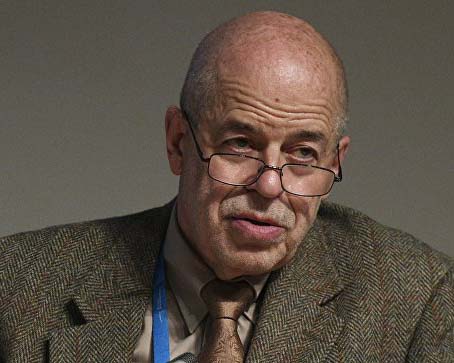 IMESClub's Council Chairman, one of the greatest world experts on the Middle East was named this week as a mediator in the Syrian peace talks and advisor to Staffan de Mistura.
IMESClub's Council Chairman, one of the greatest world experts on the Middle East was named this week as a mediator in the Syrian peace talks and advisor to Staffan de Mistura.
We share the article by Reuters on the matter.
A Russian academic named this week as a mediator in the Syrian peace talks is an acclaimed expert on the Arab world with the trust of the Kremlin, a sign of the influence Moscow has won at the negotiating table after a five-month military campaign.
Staffan de Mistura, the United Nations envoy on Syria, said he had appointed Russia's Vitaly Naumkin, 70, as a new consultant to support him in brokering peace talks in Geneva between the sides in Syria's civil war. De Mistura said he also wants to appoint an American, who has yet to be named.
The posts reflect the roles of the Cold War-era superpowers as co-sponsors of peace talks that began this week in Geneva, with Moscow a leading supporter of President Bashar al-Assad and Washington friendly with many of his enemies.
Naumkin's position is likely to ensure that Moscow retains its clout at peace talks, even as President Vladimir Putin has announced he is pulling out most of his forces after an intervention that tipped the balance of power Assad's way.
Reuters spoke to nine people who know Naumkin, and all described a talented and well-connected scholar who speaks fluent Arabic and has rich experience mediating in conflicts.
He has close working relationships with Russia's leaders, and describes himself as a protege of Yevgeny Primakov, a former Russian spy chief, foreign minister and prime minister who once served as an architect of Soviet policy in the Middle East and later as an informal mentor to President Vladimir Putin.
Naumkin did not reply to a Reuters request for an interview, but acquaintances said his views were likely to reflect Russia's policies.
"He has a political line, it's our good political line," said Alexei Malashenko, a long-standing Naumkin acquaintance and scholar in residence at the Moscow Carnegie Center think tank.
TIES TO OFFICIALS
Another person who knows Naumkin, who gave an assessment of his role on condition of anonymity, described him as a talented academic who would defer to senior Russian officials on policy.
Several of the people who spoke to Reuters said Naumkin was in regular contact with Mikhail Bogdanov, Russia's deputy foreign minister and presidential Middle East envoy.
De Mistura nevertheless said Naumkin's job would be to help the U.N. mediation team, not serve Russian interests: "He reports to me, not to his own mother country."
Born in the Ural Mountains, Naumkin studied Arabic language and history at Moscow State University, before serving for two years in the Soviet army teaching Arabic to military interpreters.
He gained a reputation as an outstanding simultaneous interpreter and was called on to translate at high-level meetings between Soviet officials and Arab leaders. It was in this role that he built up a rapport with Primakov, whom he met in Cairo in the 1960s.
Primakov later invited him to work as an academic at the Institute of Oriental Studies in Moscow, according to Naumkin's own account. Naumkin did pioneering research into Socotra, an island between Yemen and Somalia, and spent periods living in Yemen and Egypt.
"He knows the Middle East not by hearsay, not from inside an office, but he's lived within it," said Alexander Knyazev, a Kazakhstan-based analyst who has known Naumkin for years.
In the early 1990s, Naumkin facilitated back-channel negotiations between rival sides in a civil war in the mainly Muslim ex-Soviet state of Tajikistan.
Naumkin arrived in the Tajik capital at the height of the fighting together with Harold Saunders, a former U.S. Assistant Secretary of State. Unsolicited, they offered their services as mediators to the Tajik leader.
When he accepted, they went to the Tajik foreign minister's house and slaughtered a sheep to celebrate, according to Kamoludin Abdullaev, a Tajik researcher who was present.
Naumkin's role in the talks was to make sure the opposition's views were heard.
"He was very assertive. The ... negotiations ended successfully," said Mars Sariyev, a former Kyrgyz diplomat who took part on the talks.
SYRIA MEDIATION
Naumkin has already played a back-room role in Syria negotiations, coordinating two rounds of talks in Moscow, backed by the Russian foreign ministry, to try to unite some of Syria's disparate opposition.
Those talks produced no major breakthrough, though not through any fault of Naumkin's, according to Nikolai Sukhov, an Arabist scholar and former student of Naumkin.
People who know Naumkin said he would be unflagging in his efforts to broker a solution in Geneva, would be on good terms with both sides and would not let emotion or frustration get in the way, even if the talks falter.
Western diplomats say it may be useful to have Naumkin in the room at the talks. One said it would encourage the Syrian government delegation to stay at the table despite its reluctance to sit down with its opponents.
Another said it could also be reassuring to the opposition, since the Kremlin has leverage over Damascus: “If the hypothesis is that the Russians will be putting pressure on the regime, maybe it is good to have this guy there.”
(Additional reporting by Olga Dzubenko in BISHKEK, Jack Stubbs and Dmitry Solovyov in MOSCOW, Olzhas Auyezov in ALMATY and Tom Miles and Suleiman Al-Khalidi in GENEVA; writing by Christian Lowe; editing by Peter Graff)
Ближний Восток: от конфликтов к стабильности
Массовые протесты, прокатившиеся волной по арабским странам, дали импульс «тектоническому сдвигу» на Ближнем Востоке. Происходит тотальное переустройство всей системы культурных, социальных, экономических и политических отношений.
Вызвано оно, в основном, внутренними причинами – как политэкономическими, так и культурно-цивилизационными, но очевидна и связь с наиболее тревожными трендами глобального развития. Утрата управляемости международными процессами, возвращение в них фактора силы, повышение роли случайности, укрепление мировой периферии, кризис национальных государств и идентичностей находят здесь концентрированное выражение.
Исследование подготовлено командой авторов ИВ РАН, членов IMESClub.
Supervised by: Vitaly Naumkin
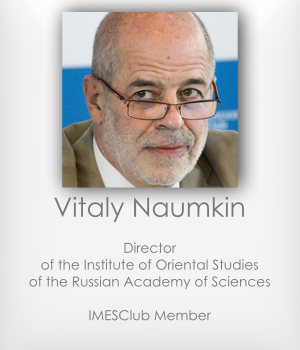
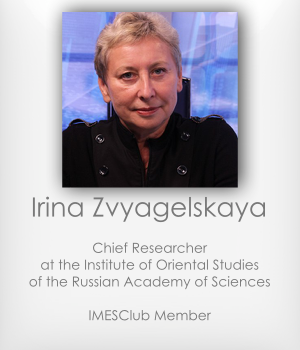
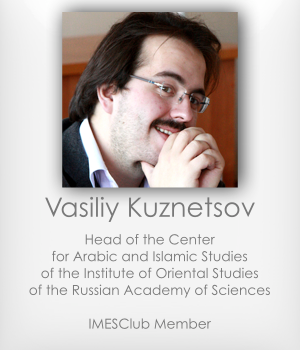

Position Paper for Valdai 2016: The Middle East: From conflicts to stability
This reconstruction can be attributed to mostly internal causes – political, economic, cultural, and civilisation-related – but there is an obvious link to the most alarming trends of global development. Its gist lies in the loss of control over international processes,the return of the factor of force, the growing role of accidents, the strengthening of the world’s periphery, and the crises of national states and identities.
The material for discussion has been prepared upon the request of the Foundation for Development and Support of the Valdai Discussion Club by the research team of the Institute of Oriental Studies of the Russian Academy of Sciences, IMESClub members.
Supervised by: Vitaly Naumkin








